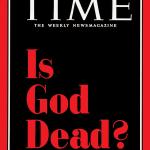How did we get here, Lenny? I grew up in this church, the same denomination in which we now serve as colleagues. This was rural eastern Iowa in the 1970-80s. I knew one black family in my high school, the daughter of the police chief.
I grew up hearing, learning, and sometimes telling racist jokes. I can’t remember when I started to realize it wasn’t okay to tell such jokes, but I got there, unfortunately later than I should have. They were mixed in with jokes about Poles, and Czechs, and I knew very few people from those countries either. This should give you an idea of the white-ness.
I don’t have a story to tell you of time spent in prison, and there are so many parts of our journey to ordained ministry that are very different. But I can tell you when God started sending signs and miracles that broke me out of some of my white supremacy and woke me up.
I went to Luther College, also a predominately white institution. But somehow I ended up as a resident assistant on a floor of international students. It was study sessions with students from the Bahamas that started it.
Also, a black trans classmate. Then later, African-American students at Luther Seminary, who were bold enough to speak up and clearly, even though this meant sometimes being asked to speak on behalf of groups of which they were simply one member.
I think a real turning point for me was exposure to some of the great cities of our country. Would you believe a cross-cultural immersion experience for a farm boy like me was to spend a January in Milwaukee, living with a black pastor and his family, learning from black churches in that city, working with them in organizing justice networks?
The first time I was the only white person in a room was in a preaching class at Howard Divinity school in Washington D.C. It was the first time I was asked a question, “How would the white church preach this?” I don’t think I knew until then that white-ness was a hermeneutic.
I thought it was just the water I swam in, and fish don’t notice they’re in water.
All of this is to say, everything you write about in Dear Church: A Love Letter from a Black Preacher to the Whitest Denomination in the US is, in a certain sense, out in the air I rarely breathed until God sent me into spaces I would have never imagined, and sometimes this means reading your book feels like leaping out of the water and into the air.
But I’m open to being what you say we might be as a church, the “offering to end white supremacy in this nation and church” (16). I’ll tell you why.
Because last year, a wonderful trans black woman and sister in Christ in our congregation died by suicide.
Because for the last almost two years, I’ve been driving down to LaSalle, Louisiana to visit another black parishioner who has been held there unjustly in ICE detention.
These same things are not happening to my white parishioners. It’s as if our culture is designed to oppress, kill, and imprison black and brown bodies.
Because every black clergy person I know in our denomination articulates struggles like you do in your book.
Because I want us to do better, to follow the pattern of repentance, reparations, and reconciliation.
Because I love you.
You take many risks writing your book. “The inherent danger of asking the perpetrators of a crime to now participate in restorative justice are clear to me.”
Again today police in California shot a black man to death who was asleep in his car. Most days, I hear such news, and I have no idea what to do.
But I do know you’re right, theologically, even if I cringe existentially, when you say, “So I offer your own death to you as an alternative to white supremacy. Because the truth is, the church is dying, and I don’t want to see it die without the hope of resurrection.”
This is maybe why I kept tearing up while reading your book, Lenny. I’m not much of a pentecostal, except I cry all the time. Preaching. Disney movies. And your book.
I know most of your letter is a love letter rather than a prescription, Lenny, and it’s a damn fine love letter. But I am glad you offered some prescriptions for us, because I need them.
I found this one list especially helpful.
This many mean that straight white men remove themselves from ecclesial ballots for bishop.
This many mean that we divert funds to support black churches and leaders indefinitely.
This may mean our seminaries offer free tuition to any African-descent leader who wants to serve in any rostered or non-rostered position in the church.
This may mean that we make sure black voices are at the table for our next [hymnal creation] and aren’t relegated to a separate book.
This may mean Advent is no longer about a journey from darkness to light.
This may mean that white paraments no longer represent resurrection.
This may mean that our seminaries have to guarantee at least 30 percent faculty of color.
This may mean you should join the African Descent Lutheran Association.
This may mean that you go to your pastor and say you want to hear about slain unarmed black men in the sermon.
This may mean that you are going to be really uncomfortable.
This may mean the images of Jesus adorning our churches need to be black and brown and not white.
This may mean we all pre-order Lenny’s book right away.
I hear you, and really try to hear you, as you call this church out for its complicity in white supremacy, toxic masculinity, and nationalism. I hear you when you confess, “I know grace is why so many black Lutherans put up with thousands of micro-aggressions that feel like death by a thousand tiny cuts in this church.”
It’s the grace you show this church, you show me, that in the end lifts me up even in and through death to resurrection.
It’s the love that carries me. You write, “Dear Church, I love you. I mean a stay-up-late-at-night-and-think-about-you kind of ‘I love you.’ I still get butterflies in my stomach when I think of you, Church. And now that we’ve made it this far into the book together, I thought it was time to stop and remind you about my love for you.”
It’s here that I wept and caught my breath and gasped, Lenny. Because we have the same love. This church has been so much to both of us, and there are things this church is and has been and will be that take my breath away.
Grace for LGBTQ+ leaders and full inclusion. Ministry in rural areas. Disaster relief. Refugee resettlement. That gigantic Youth Gathering we put on every few years.
Our church is Gorgeous (120). “That’s you, Church. You stand on the shores of this world, waiting to greet those who are ready to embrace the grace they have been given” (122).
Oh my Lenny I love this book. I mean, in the end it’s not from a pharmacist, a prescription that if followed will heal everything. No, it’s more than that. It’s like an epistle and love letter, as if Jane Austen or somebody had decided to add to the New Testament canon. Somehow, it weaves together deep love and profound challenge in ways that make me feel alive.
And I want to grow with you, in the ways you see us growing. Not more butts in the pews, although that wouldn’t be all bad. You “mean growing in nearness to our creator until our very presence can become like a means of grace to a hungry world. Growing a popular love movement that actually creates sustainable and revolutionary change in this country. Growing in Holy Spirit power, growing in concern for the poor and oppressed. Growing in our sexual ethic and queer theology. Growing in solidarity and commitment. That is the growth we should be aiming for.”
How did we get here, that we align on these goals, given where we’ve come from, Lenny? Might it have something to do with God being real, and bringing revolution?
—
Some portions of this post excerpted and adapted from the forthcoming book Dear Church: A Love Letter from a Black Preacher to the Whitest Denomination in the U.S. by Rev. Lenny Duncan copyright © 2019 Fortress Press.

















